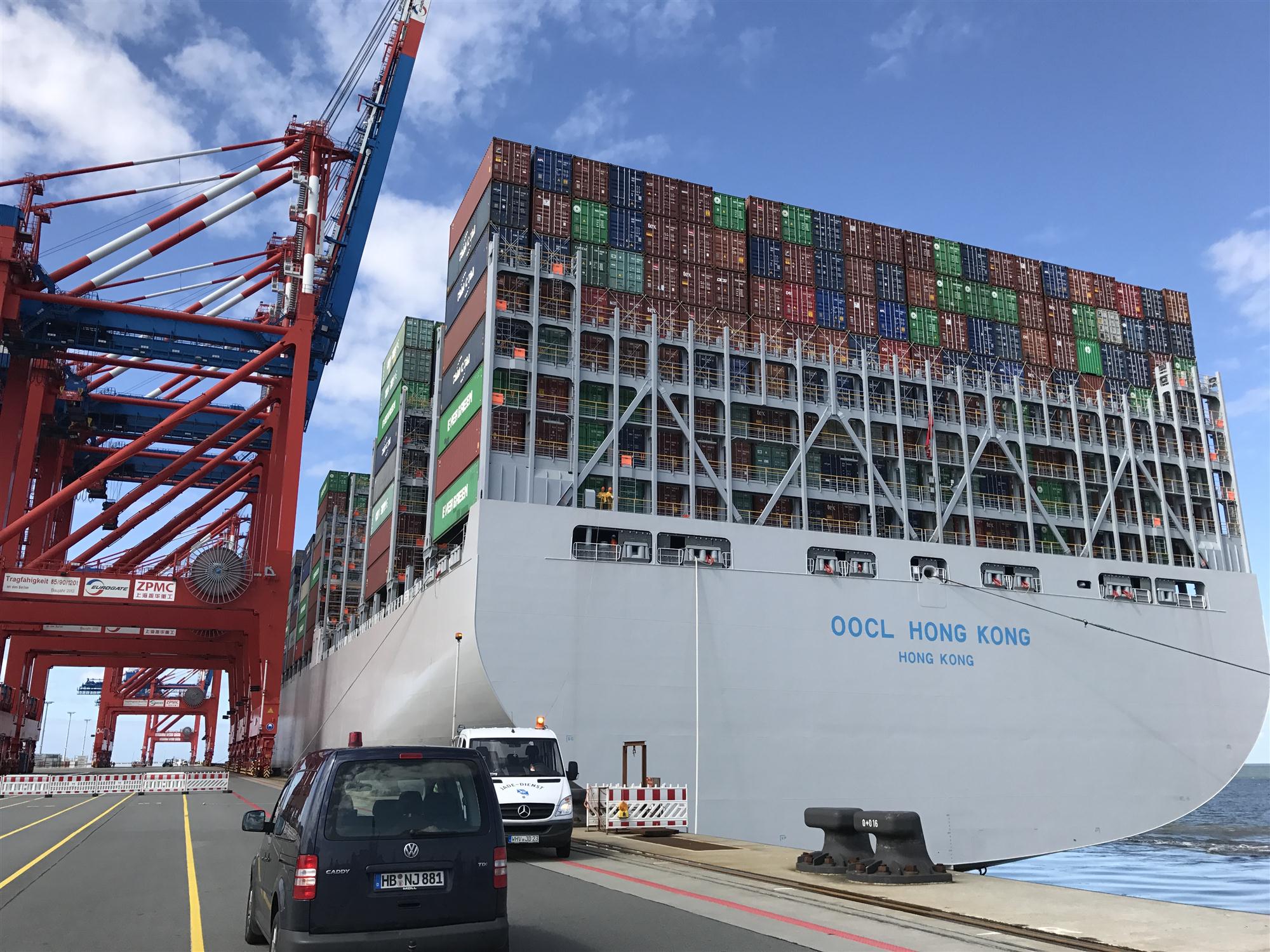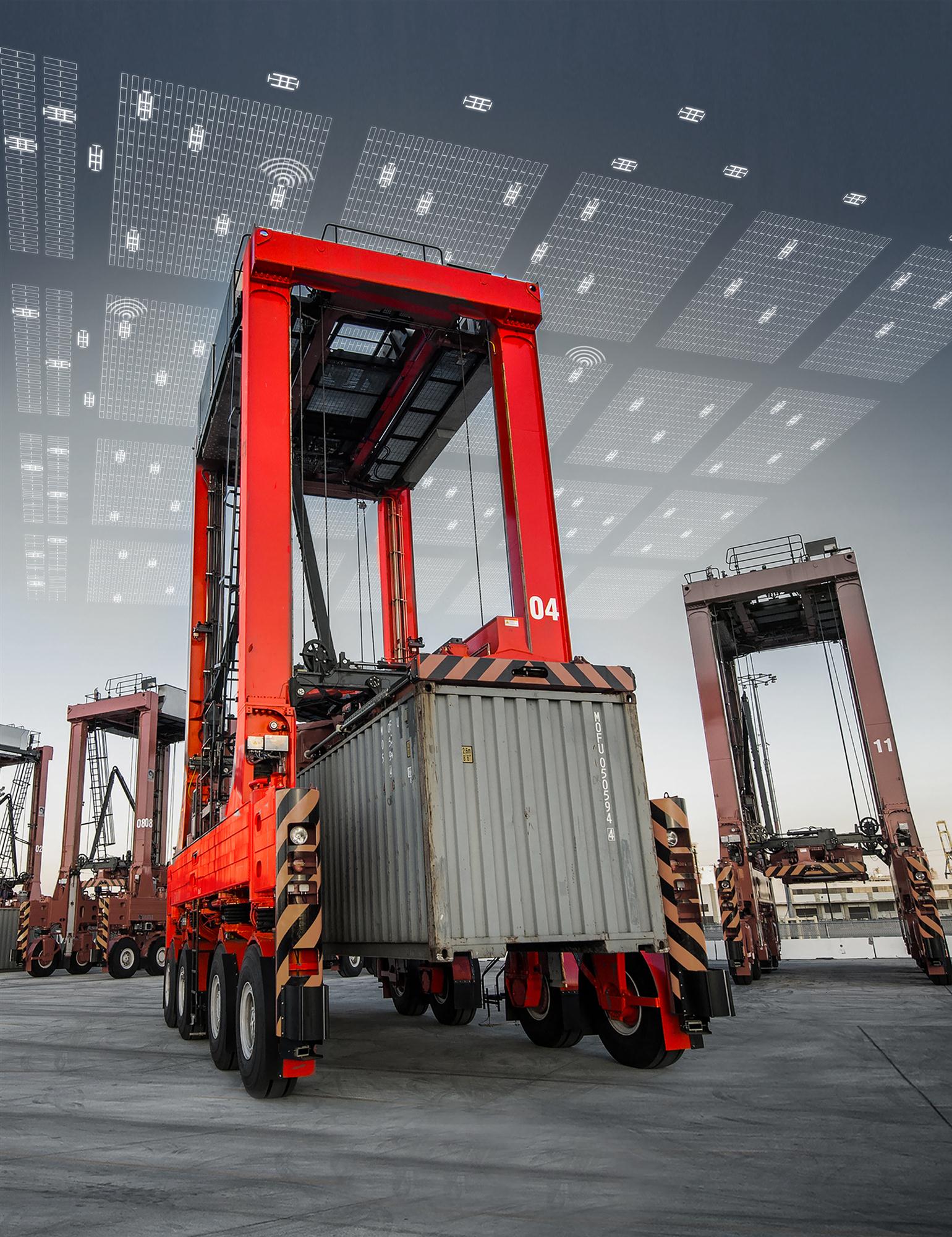While the Eurogate Group’s overall throughput dipped in 2017, the company hopes to change that this year and is focusing on growing volumes at its container terminal in Wilhelmshaven.
“We had significant business losses in Hamburg in connection with the new consortia situation where we lost UASC to Hapag-Lloyd and China Shipping to COSCO, with both being handled by HHLA,” said Michael Blach, chairman of the management board at the Eurogate Group, in an interview during the transport logistic China 2018 conference and exhibition in Shanghai. “We then knew that we would have a good chance to get the volumes from Hamburg Süd. We’ve finalized the negotiations with Maersk and the transition of these volumes to Eurogate will take place over the next 12 months.”
As a result of the carrier changes as well as the bankruptcy of Hanjin Shipping, Eurogate’s Hamburg terminal saw its 2017 volumes drop 25.6% compared to 2016. On the other hand, the Wilhelmshaven terminal grew its throughput by 15.1%. Overall, Eurogate handled a total of approximately 14.4 million TEUs, a year-on-year decrease of 1.4%.
“Our target is to increase this,” Blach said. “We’ve had years where we didn’t have any growth in our main markets in Germany and Italy, but we hope to be able to participate in the growth again this year, particularly in Germany.”
Even though the volumes from Hamburg Süd will only make up about a third to half of what Eurogate lost in Hamburg, Blach said that Hyundai Merchant Marine’s new Asia Europe Express service has been a positive surprise and has brought more business to Hamburg than he had expected.
To further develop the business in Wilhelmshaven, Eurogate has been in discussions with Maersk to bring more services to the deepsea terminal.
“In connection with the changeover in networks, the AE5 service now has Wilhelmshaven as its last port of call leaving Europe,” said Blach. “This of course is a very strong signal to Wilhelmshaven because if you’re loading the biggest ships with a draft of up to 16.5 metres, you’ll need to feed business into the port to fill the vessels up to max capacity.”

Since the arrival of the Ocean Alliance in May 2017, ultra-large vessels have been a regular occurrence at Wilhelmshaven, with the 21,413 TEU OOCL Hong Kong making its inaugural call in July 2017.
“What we have seen is a lot more local business, so the whole intermodal network for trains is much more developed,” Blach said. “We have a total of six rail providers in Wilhelmshaven and an advanced network. The trucking scene has also developed quite a bit in the meantime. In terms of supporting a last call for exports, a lot of the infrastructure and support are already there. Of course, there might need to be some more feeder activity but they all know Wilhelmshaven well by now, so in that sense it should be quite doable.”
While Eurogate has no problems with the actual handling of mega vessels, Blach said that the reorganization of the shipping alliance structure has placed more stress on the terminal system as a whole.
“I don’t think it’s for us to change or stop what the carriers want to do, but when we observe the changes, it is clear that, because we now only have three alliances on the Asia-Europe lane, the packages of business have become very large,” he said. “When you only have three packages to split then sometimes things don’t really fit well and you might end up with a situation where some terminals have too much and some have too little. In Hamburg, for example, we only have one alliance while HHLA has two.”
Overall, the change undoubtedly brings benefits for the carriers, but the same cannot necessarily be said for terminal and port operators, who now have to deal with a different set of dynamics.
“When you get a huge ship, you need to handle those enormous peaks, but then you might have one day where you have nothing to do before another huge ship arrives the next day,” said Blach. “Because the consortia try to consolidate all their business at one terminal it’s more difficult to make things fit. This of course will somehow sort itself out over time, but at least in the beginning it’s a challenge for everybody involved.”
At the same time, Eurogate is preparing to carry out a pilot project assessing the feasibility of automated handling equipment. The automation trial, involving four straddle carriers that were ordered in December 2017, will be conducted in an area of the Wilhelmshaven terminal not currently used for day-to-day operations.

“They are going to be delivered in the fourth quarter of this year and will then undergo testing in Finland under very harsh conditions until around December,” Blach said. “The plan is for them to be transferred to Wilhelmshaven at the beginning of 2019 for real-time testing by us. Hopefully by next summer, we will be able to really evaluate the results.”
At the end of 2017, Eurogate also made the commitment to introduce new software infrastructure at its Bremerhaven terminal in about two years’ time. Combined with predictions based on big data, the company hopes to make terminal operations much smoother and more efficient.
“Today a lot of the information comes to us late, but we can now start to use the data and make predictive analyses earlier to avoid extra moves and reshuffling at the terminal,” said Blach. “In Bremerhaven, parts of our terminal software are up to 30 years old. It has worked well up to now, but it’s clear that if we install a more modern terminal operating system, we have optimization possibilities that will mean a big improvement.”
Blach added that, all in all, Eurogate had made a good start to the year and that the group would continue to find ways to grow the combined business of all its terminals.
“I think we have seen a number of good signals that there will be positive developments to our volumes,” he said. “We’re confident that we can finish the year off quite strongly.”
By Jeffrey Lee
Asia Cargo News | Shanghai




